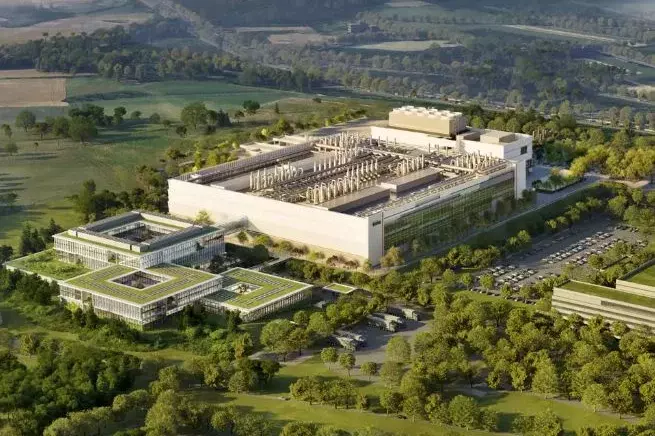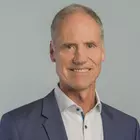Dresden: Groundbreaking ceremony for TSMC's first European chip factory
Today, in the presence of EU Commission President Ursula von der Leyen, German Federal Chancellor Olaf Scholz and Saxony's Minister President Michael Kretschmer, the ground-breaking ceremony for TSMC's first European chip factory took place in Dresden. The new semiconductor plant under the name ESMC is a joint project between TSMC, Bosch, Infineon and NXP, who are investing ten billion in its construction. 2,000 jobs are planned and production is due to start at the end of 2027. Together with the Saxon state government, the state capital of Dresden and other partners, the Saxony Trade & Invest Corp. (WFS) has been intensively supporting the establishment of TSMC for more than two years.

Reinforcement for Saxony's semiconductor ecosystem
"Silicon Saxony", the largest microelectronics cluster in Europe, continues to grow. ESMC's ground-breaking ceremony today strengthens Saxony's semiconductor ecosystem. Saxony's Minister President Michael Kretschmer emphasized in his speech at the ground-breaking ceremony: “It is a great day and we are delighted that we can experience it here together. Dresden is the best place for microelectronics in Europe. Silicon Saxony, that means future technology, economic policy and science policy that has worked continuously towards one goal over many years and decades, together with many partners. Building on the history of Robotron, then in the 1990s this central investment by Infineon and AMD and now many other companies.”
Magnet for skilled workers
Saxony's Minister of Economic Affairs Martin Dulig: “We need semiconductors to master the burning challenges of our time: digitalization, the energy transition, electromobility, artificial intelligence... everything only happens with microchips. This branch of industry is therefore crucial for the competitiveness of our economy and, in view of the current geopolitical upheavals, ultimately also for our security.
Today's ground-breaking ceremony for the new semiconductor plant here in Dresden not only lays the foundation for a pioneering technology, but also for sustainable economic development in the region by involving local suppliers, service providers and craft businesses. This project will create new direct and indirect jobs and will also be a magnet for skilled workers from all over the world. We want Saxony to remain home to top people from near and far. That's why the Free State is creating the conditions for people to come to Germany or Saxony specifically to work or train here.”
Saxony as a “Taiwan hub” for Germany and Europe
Thomas Horn, Managing Director of the Saxony Trade & Invest Corp. (WFS) adds: “Now things are really getting underway. Construction is now underway. Today's ground-breaking ceremony for the ESMC factory is the first major milestone. The fact that this is taking place so quickly, just one year after the announcement of this huge investment project, underlines the determination and great commitment with which all those involved have contributed to its timely realization.
This project will have a major impact on the entire business location of Saxony, far beyond Dresden. That is why we are now working in parallel with the construction of the Fab together with a wide range of partners to strengthen and further develop the existing Saxon value chains here and to systematically expand them with other regional and international suppliers and service providers. The growth of the “Silicon Saxony” region is a huge opportunity for suppliers of all sizes and types - from materials, machines and equipment to software and services. Whether from Germany, Europe, the USA or Asia - the door is wide open for everyone. The WFS is available as a point of contact for corresponding inquiries.
Together with the Saxon state government, we are also pursuing the goal of making Saxony the “Taiwan hub” in Germany and Europe. We would be delighted if numerous Taiwanese companies from both the microelectronics and other sectors were to set up their new European base here. The opportunities for this have never been as good as in the context of TSMC's relocation.”
The project is the first German project to receive five billion euros in state subsidies on the basis of the European Chips Act. Semiconductors will be produced primarily for the automotive and energy industries.

